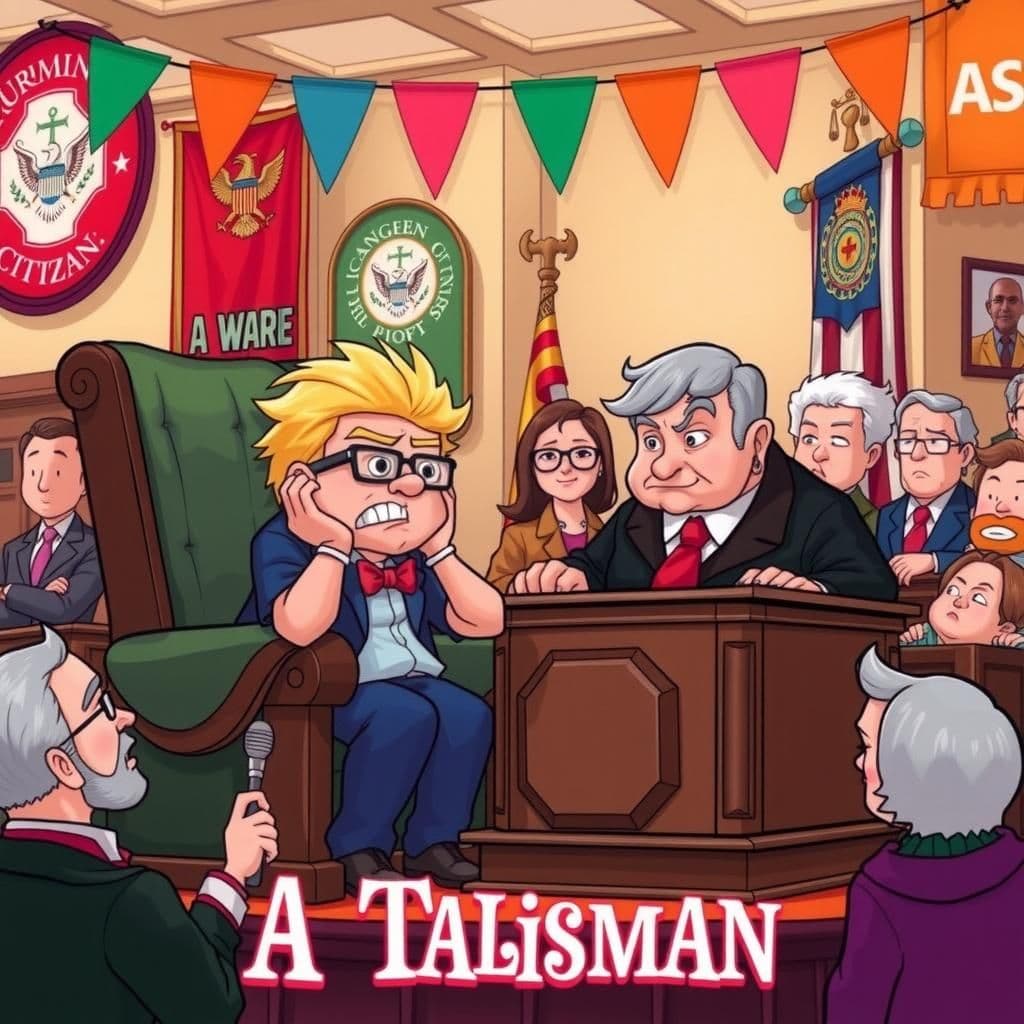A Talisman
In the short bedtime story "A Talisman," a Prominent Citizen tries to evade jury duty by submitting a physician's certificate claiming he suffers from softening of the brain. The Judge humorously dismisses his excuse, stating that he indeed possesses a brain, highlighting the importance of fulfilling civic responsibilities. This thought-provoking moral story serves as a valuable lesson for young readers about accountability and the futility of trying to avoid one's duties.

Reveal Moral
"The moral of the story is that true wisdom and discernment often reveal themselves through actions rather than mere appearances or claims."
You May Also Like

The Judge and the Rash Act
In this humorous story with a moral, a discontented judge, desperate for recognition and contemplating suicide due to his lackluster career, encounters a ghostly figure known as the "Rash Act." When the figure offers to be committed, the judge declines, insisting that it would be improper to act on such a whim while not serving as a committing magistrate. This quick moral story highlights the absurdity of rigid adherence to duty, making it a fitting addition to short story collections with moral lessons for young readers.

The Return of the Representative
In "The Return of the Representative," a group of disgruntled citizens from an Assembly District, reminiscent of famous fables with moral lessons, convene to decide extreme punishments for their absent representative, contemplating disembowelment and hanging. Their plans take an unexpected turn when the representative arrives in a celebratory coach, greeted by a brass band, declaring it the proudest moment of his life, much to the dismay of the crowd. This classic moral story highlights the irony of public sentiment and the disconnect between representatives and their constituents.

At Large - One Temper
In "At Large - One Temper," a turbulent individual is on trial for assault with intent to commit murder after wreaking havoc in town. The defendant's Attorney attempts to lighten the proceedings by asking the Judge if he has ever lost his temper, resulting in a fine for contempt of court, to which the Attorney humorously replies that perhaps his client has found the Judge's lost temper. This short story offers a meaningful exploration of anger and accountability, reminiscent of famous fables with moral lessons.